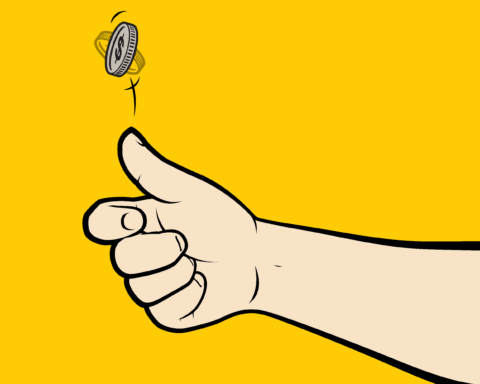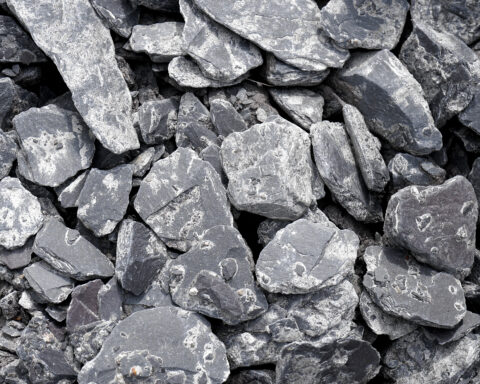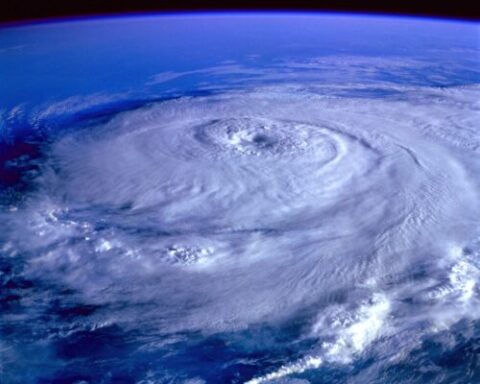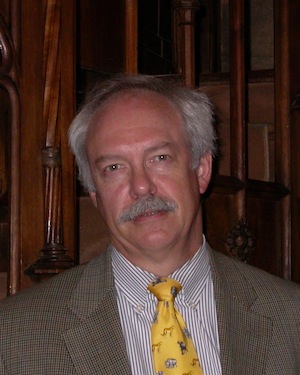
Texts: Isaiah 55:1-13 and Luke 3:1-22
Each time we gather for worship, the waters of our baptism are before us. In these waters, we are sealed in the new covenant of Jesus Christ. Our sins are washed away as we acknowledge that we have been loved and claimed by the God who knows our name before we can say God’s name. In these waters, the Holy Spirit empowers us to live as disciples of Jesus Christ – to die daily to our sins and to rise again with Christ to righteousness and to new life.
Our Gospel lesson today reminds us that Jesus, too, passed through the waters of baptism. Luke tells us about John, the one who prepared the way for Jesus, baptizing and preaching to the crowds. The one who baptized Jesus himself. John “went into all the region around the Jordan, proclaiming a baptism of repentance for the forgiveness of sins.” And to be sure, John minces no words in his call to repentance. I think it’s safe to say that most pastors, when we celebrate a baptism in our places of worship, do not begin by addressing the congregation, “You brood of vipers!”
___________________________________________
When we are baptized into the new covenant of Jesus Christ, we enter into covenant relationship not only with God, but also with one another. Through our baptism we are joined with believers in all times and places.
___________________________________________
Yes, John is a prophet: He calls it like he sees it, and he is concerned – very concerned with repentance. Certainly repentance is something that we associate with baptism. We ask the one being baptized, or the parents, when we baptize an infant, to renounce evil and affirm their reliance on God’s grace. Furthermore, in the Reformed tradition, each week when we gather for worship, we confess our sins together and turn to God for forgiveness. But this concept of repentance can make us a little uncomfortable, can’t it? Perhaps it’s our Presbyterian heritage showing through, proclaiming that it is God’s grace that saves us, nothing of ourselves. Perhaps “repent” is a word we hear too often from street preachers as part of their doomsday proclamations. Still, we can’t deny that living into our baptism, living as disciples of Jesus Christ, involves this uncomfortable word – repentance.

John’s listeners, though, understand the urgency of this call. They ask him, “What then should we do?” In John’s time, repentance could mean putting on the clothes of mourning – sackcloth and ashes – ashes like those we will receive today. It could mean offering sacrifices for atonement and restoration. It could mean a sincere confession of sin. But John has a larger, more holistic idea of repentance. For John, repentance has to do with a change of lifestyle. He tells the crowds, “Whoever has two coats must share with anyone who has none.” To the tax collectors, he says, “Collect no more than the amount prescribed for you.” To the soldiers, he says, “Do not extort money from anyone by threats or false accusation, and be satisfied with your wages.”
John gives real, practical advice on how to live a life that bears fruit worthy of repentance. Care for those around you by sharing whatever you have that goes above and beyond what is necessary for survival. Whatever your profession, go about your work in a way that does not exploit other people for your own lifestyle or personal gain.
Certainly as twenty-first-century Christians, our understanding of baptism is different from that of John – a first-century Jew. In our own baptisms, we look back not to John, but to Jesus. But in John’s call to repentance, don’t we also hear Jesus’ call to discipleship, to new life in the covenant community? God claims us in baptism by God’s grace alone – and yet, we can also feel the way the Gospel claims our lives, the way that, as disciples, we are new people, people who have died and risen with Jesus Christ and cannot live the same way anymore.
___________________________________________
And it is water – this ordinary substance of our daily lives – that John used and that we still use today in the sacrament of baptism. Water is an ordinary substance, but it is also the substance upon which our life depends.
___________________________________________
And it is water – this ordinary substance of our daily lives – that John used and that we still use today in the sacrament of baptism. A day does not pass that we do not see water: water from the faucet to drink, water falling from the skies as rain, the water in which we bathe, or the waters of the lakes, streams, oceans, that make life on earth possible. Water is an ordinary substance, but it is also the substance upon which our life depends. A human cannot live more than 3 days without water. Water makes it possible for us to grow crops for food; it allows ecosystems to develop and thrive. As we have begun to explore other planets in our solar system, what have we looked for but signs of water to indicate to us whether life may have been possible on that planet? Water is an appropriate symbol for baptism because water truly is life.
 A little over a year ago, I had the opportunity to travel to Guatemala to learn from Guatemalan brothers and sisters about Christ’s work and ministry in their context. Guatemala has had a troubled history as they have tried to shake off the shackles of colonialism and grow into their identity as a nation. Though Guatemala officially won independence from Spain in 1821, the power structure established in colonial times changed very little in the following 150 years. In the 1950s, troubles came to a head when our own CIA, fearing for US business interests in Guatemala, orchestrated a military coup to overthrow the elected president. What followed was a 30-year civil war that cost the lives of more than 300,000 people. Peace Accords were signed in 1996, but the culture of violence and inequality persists. People still disappear and are murdered daily, and the poverty that existed before the civil war has only gotten worse.
A little over a year ago, I had the opportunity to travel to Guatemala to learn from Guatemalan brothers and sisters about Christ’s work and ministry in their context. Guatemala has had a troubled history as they have tried to shake off the shackles of colonialism and grow into their identity as a nation. Though Guatemala officially won independence from Spain in 1821, the power structure established in colonial times changed very little in the following 150 years. In the 1950s, troubles came to a head when our own CIA, fearing for US business interests in Guatemala, orchestrated a military coup to overthrow the elected president. What followed was a 30-year civil war that cost the lives of more than 300,000 people. Peace Accords were signed in 1996, but the culture of violence and inequality persists. People still disappear and are murdered daily, and the poverty that existed before the civil war has only gotten worse.
In the midst of this context, our group met with an organization called COPAE, the Commission on Peace and Ecology, located in the mountain town of San Marcos. COPAE started as a social ministry of the local Catholic Church in 2003, when the Guatemalan Government gave the transnational corporation Goldcorp the license to open a mine in San Marcos. Goldcorp built the mine on land where many Maya indigenous campesinos lived and farmed, and yet these campesinos had no say in the matter. You see, while the Maya people own the land itself, the government claims that it owns subsoil and any resources found there. They can give the land to mining corporations as they please.
___________________________________________
As I listened to these stories of the contamination of San Marcos’ waters, I couldn’t help but think about other waters, the waters through which God claims us in baptism. And what happens when we pollute these waters?
___________________________________________
The people at COPAE explained to us that the campesinos living in the area are not opposed to giving up some of their land to the mines, but they want enough land to survive, and they want the integrity of the earth and of their own lives to be protected. But mining corporations like Goldcorp aren’t required to follow any environmental regulations, so the waste from the mining projects flows into the residents’ water, contaminating their drinking water, their crops, and their livestock. COPAE has established labs to monitor the quality of the water. Even just 1 year after the mine opened, they were finding dangerous quantities of lead, other heavy metals, and cyanide.

As I listened to these stories of the contamination of San Marcos’ waters, I couldn’t help but think about other waters, the waters through which God claims us in baptism. And what happens when we pollute these waters? When we think of sin, of the ways we are impure, unholy, or defiled before God, I imagine most of us tend to think in spiritual terms. Perhaps we think of our spirits being darkened, our souls bearing black marks or spots. But as we talked with the people at COPAE, one man, let’s call him Andrés, stood up and reminded us that water is God’s gift of life. Water is the substance on which our physical and our spiritual lives depend. He looked us in the eye and asked us – how can we pollute and privatize God’s precious gift of life abundant?
John the Baptist tells us to bear fruit worthy of the repentance expressed in our baptism. Andrés gave me a glimpse of what the fruit of repentance might look like. A member of our group asked him what we, a visiting group from the United States, could do to accompany COPAE and the people of San Marcos in their ministry and their struggle. He told us, “You are our prophets. Tell our story. Announce the good news of the abundant life God has given us and denounce that which limits abundance to only one group of people.” Andrés’ words sound to me a lot like John the Baptist’s description of repentance. He called us to participate in God’s Kingdom of abundant life for all by sharing what we have with our neighbors and by not profiting ourselves through the exploitation and oppression of our brothers and sisters in Christ.
___________________________________________
He told us, “You are our prophets. Tell our story. Announce the good news of the abundant life God has given us and denounce that which limits abundance to only one group of people.”
___________________________________________
“Ho,” calls the Prophet Isaiah, “Everyone who thirsts, come to the waters! And you that have no money, come, buy and eat! Come, buy wine and milk without money and without price.” It’s appropriate, isn’t it, that again it is water that Isaiah uses as an image of God’s salvation. Water is a universal need, and we understand this just as well as the ancient Israelites, as John the Baptist’s audience, and as the campesinos of San Marcos. This water is the very symbol of the abundant life God gives us. Yet how can anyone come to the waters, if we have filled them with toxic waste?
 When we are baptized into the new covenant of Jesus Christ, we enter into covenant relationship not only with God, but also with one another. Through our baptism we are joined with believers in all times and places. Not only in our own worshiping communities, but all around the world – and in San Marcos, Guatemala. We are bound in covenant relationship with people we’ll never know from places we’ve never heard of. And as disciples of Jesus Christ, we are called to love them as ourselves.
When we are baptized into the new covenant of Jesus Christ, we enter into covenant relationship not only with God, but also with one another. Through our baptism we are joined with believers in all times and places. Not only in our own worshiping communities, but all around the world – and in San Marcos, Guatemala. We are bound in covenant relationship with people we’ll never know from places we’ve never heard of. And as disciples of Jesus Christ, we are called to love them as ourselves.
This kind of living requires great trust in God’s Word and God’s claim on our lives. It requires that we repent – that we turn from our sin, from ourselves, and rely on God’s grace for a new future. It requires that we change how we live so that we might bear fruit worthy of repentance.
So will we? As many of us receive the imposition of ashes today, will we announce God’s abundance and denounce those who would keep it all to themselves? Will we see the world around us through the lens of our faith in Jesus Christ, and will we respond accordingly? Will we listen to the voices of our brothers and sisters from around the world about the way our actions and decisions affect their daily lives? Will we live in such a way that people can see we below to a covenant community?
God has called us, claimed us, and washed us clean in the waters of our baptism. Will we now bear fruit worthy of our repentance?






Unbound Social